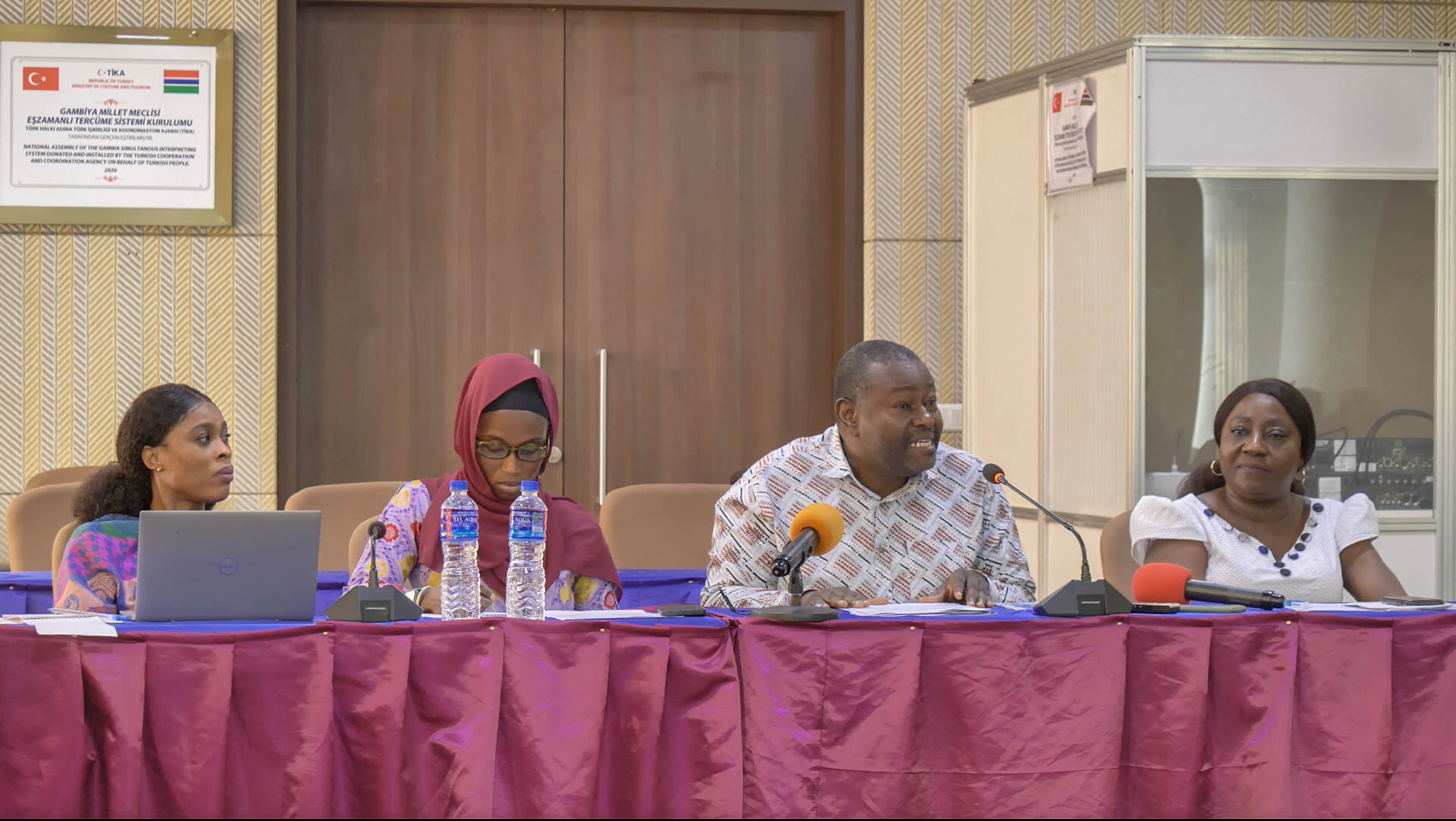
NHRC Meets National Assembly Joint Committee on Health and Gender on the Proposed Repeal of the FGM Law
Presently, there is polarising public discussions about a Private Member’s Bill, Women’s (Amendment) Act 2024, that seeks to repeal the Women’s (Amendment) Act 2015 which bans and criminalizes Female Circumcision in The Gambia. The issue has sparked widespread debate and concern among the National Assembly Members, Civil Society Organisations, Religious Leaders, Community Leaders, Activists and the International Community.
In a consultation meeting held on the 25th of June 2024, the Commission, led by its Chairperson, Mr. Emmanuel D. Joof, engaged in a comprehensive discussion with the National Assembly Joint Committee on Gender and Health on the Women’s (Amendment) Act 2024. The NHRC firmly reiterated its position that FGM is a severe violation of the rights of women and girls, and its unbanning would derogate from The Gambia’s obligations under ratified international and regional human rights instruments and protocols, including CEDAW and the Maputo Protocol, which prohibit all forms of harmful traditional and cultural practices that affect the health and wellbeing of women and girls.
 “The repeal of the law banning FGM would be a significant setback in our efforts to protect the rights of women and girls. It is imperative that we uphold and strengthen legal frameworks that safeguard them from such harmful practice”, stated Mr. Emmanuel D. Joof.
“The repeal of the law banning FGM would be a significant setback in our efforts to protect the rights of women and girls. It is imperative that we uphold and strengthen legal frameworks that safeguard them from such harmful practice”, stated Mr. Emmanuel D. Joof.
The NHRC fervently urged the National Assembly Joint Committee to reject any attempt to repeal the law banning FGM. In its submission, the Commission made references to testimonies of survivors of FGM and medical experts on the harmful effects of the practice and emphasised the fundamental human rights that FGM violates, including the rights to life, health, bodily integrity and freedom from torture or cruel, inhuman, or degrading treatment.
 “The fight against FGM requires a concerted effort from all sectors of society. We must work together to change these harmful practices”, Mrs. Jainaba Johm, Vice Chairperson of NHRC.
“The fight against FGM requires a concerted effort from all sectors of society. We must work together to change these harmful practices”, Mrs. Jainaba Johm, Vice Chairperson of NHRC.
In fulfilment of its advisory role to the State, in May the Commission also submitted a Position Paper to the National Assembly Joint Committee on Gender and Health in which it calls for the retention of the Women’s (Amendment) Act 2015 and a total rejection of the Women’s (Amendment) Bill 2024.

The NHRC’s steadfast stance against the repeal of the law banning FGM highlights the importance of safeguarding the rights of women and girls and the State’s obligations in that respect. Its engagement with the National Assembly Joint Committee on Health and Gender and other efforts towards the total abandonment of FGM in the country are significant steps towards the creation of a society where the rights and dignity of women and girls are respected and protected.










